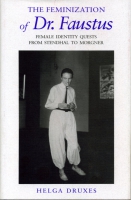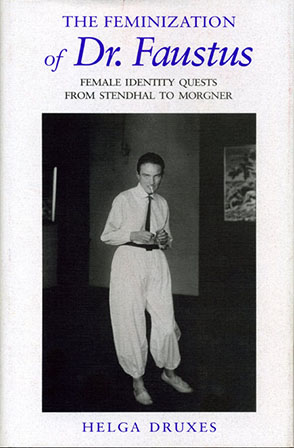The Feminization of Dr. Faustus
Female Identity Quests from Stendhal to Morgner
Helga Druxes
“This book will contribute not only to the study of a central myth in Western culture but also to genre studies of the novel, as well as to feminist work on nineteenth- and twentieth-century fiction—an area where much less has been done in German and comparative literature than in the individual national traditions in English and French.”
- Description
- Reviews
- Bio
- Subjects
Since nineteenth-century writers make female subjectivity the arena in which the conflicts of male subjecthood are debated, their attempts to create female versions of the heroic quest for self-knowledge speak not only to the crisis of the male model but also to the crisis of the realistic novel. Using psychoanalytic theory and French feminist and deconstructionist theory, Helga Druxes shows how the female Faustian quest for worldly knowledge and subjecthood develops a new concept of identity that takes its social constructedness into account, and she demonstrates some of the transgressive narrative strategies that male and female writers have employed, embodying their dissent not only in the creation of a female Faust but in their visions of an authentic female desire for selfhood and socially regenerative female bonding.
“This book will contribute not only to the study of a central myth in Western culture but also to genre studies of the novel, as well as to feminist work on nineteenth- and twentieth-century fiction—an area where much less has been done in German and comparative literature than in the individual national traditions in English and French.”
Helga Druxes is Assistant Professor of German and Literary Studies at Williams College and author of Querbeet: An Intermediate German Reader (1988).
Mailing List
Subscribe to our mailing list and be notified about new titles, journals and catalogs.




